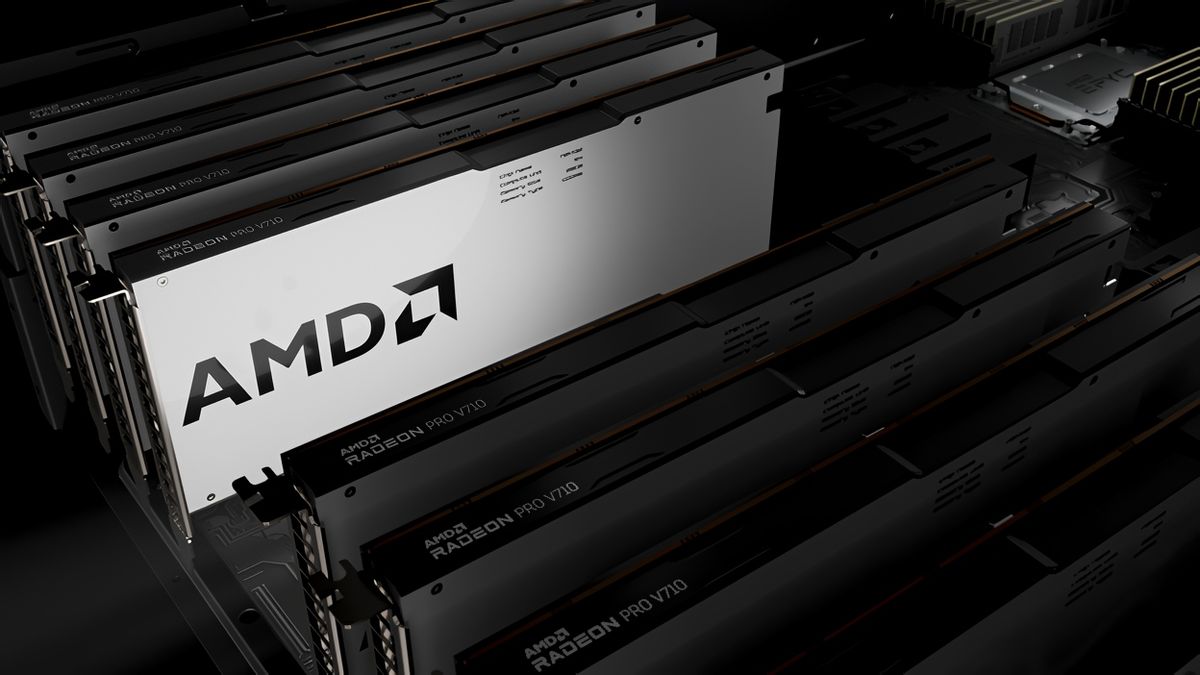AMD has announced the Radeon PRO V710, a new GPU designed for access via Microsoft Azure, the exclusive cloud partner, as part of the company’s family of visual cloud GPUs.
The V710 is available today in private preview, but anyone hoping to use it for a home PC setup will be disappointed, as the V710 features a single-slot design and passive cooling.
AMD built the V710 on the Navi 32 architecture, and there are 54 Compute Units, alongside 28GB of VRAM, 448 GB/s memory transfer rate, and 54MB of L3 AMD Infinity Cache tech. The company says the V710 is ideal for small to medium machine learning inference workloads and small model training via its open-source AMD ROCm software, which seeks to compete with Nvidia’s CUDA.
| Instance Config | vCPU | Memory | GPU | GPU Memory | Temp Disk Size | Max Bandwidth |
| NV28adms_V710_v5 | 28 | 160 GB | 1x V710 | 24 GB | 1536 GB | 20000 Mbps |
| NV24ads_V710_v5 | 24 | 128 GB | 1x V710 | 24 GB | 1536 GB | 20000 Mbps |
| NV12ads_V710_v5 | 12 | 64 GB | 1/2 V710 | 12 GB | 768 GB | 10000 Mbps |
| NV8ads_V710_v5 | 8 | 32 GB | 1/3 V710 | 8 GB | 512 GB | 6600 Mbps |
| NV4ads_V710_v5 | 4 | 16 GB | 1/6 V710 | 4 GB | 256 GB | 3300 Mbps |
The best data center GPU?
“With support for hardware virtualization implemented in compliance with the PCI Express SR-IOV standard, instances based on the Radeon PRO V710 can provide robust isolation between multiple virtual machines running on the same physical GPU and between the host and guest environments,” says AMD. “The efficient RDNA 3 architecture provides excellent performance per watt, enabling a single slot, passively cooled form factor compliant with the PCIe CEM spec.”
As Intel has fallen away, AMD has really cornered the market for data centre-level GPUs, and it shows.
Compared to AMD’s RX 7700 XT, the V710 has twice as much memory, higher memory bandwidth, and a 500 MHz lower GPU clock. The company says that changes in the design locked it to 158 watts, or 35% less power compared to the GPU’s gaming variant.






